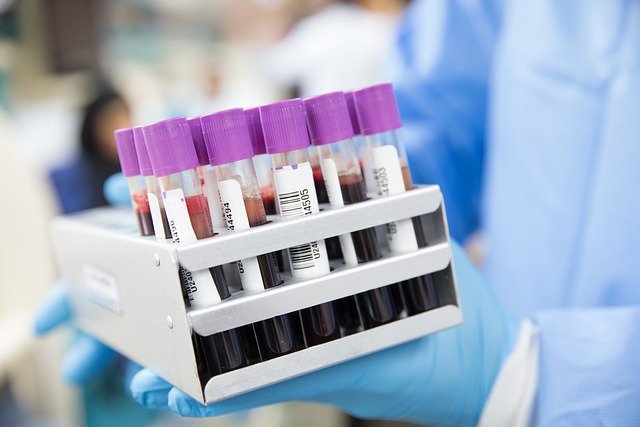
In a new study, researchers have found how a simple blood test could be used to help identify heart aging and the risk of heart disease.
For the first time, they reported that higher levels of amyloid-beta in the blood may be a key indicator of heart disease.
It is hoped that this research will one day lead to the development of a simple blood test that could be used as a clinical biomarker to identify patients who are most at risk so that preventative measures can be put in place and death rates reduced.
The research was conducted by a team at Newcastle University.
Cardiovascular disease is the number one cause of death around the world, taking almost 18 million lives each year. It includes coronary heart disease, heart attack, heart failure, and other conditions.
Amyloid-beta is known to be involved in the development of Alzheimer’s disease, yet scientists have now concluded that it may have a key role to play in vascular stiffening, thickening of the arteries, heart failure, and heart disease progression.
The team analyzed blood samples from more than 6,600 patients from multiple cohort studies in nine countries and found that patients could be divided into high and low-risk categories of heart disease based on their amyloid-beta levels.
The work proposes the existence of a common link between both conditions, which has not been acknowledged before and could lead to better patient care.
The findings suggest that the higher the level of amyloid-beta in the blood the higher the risk of developing serious heart complications.
The team says for the first time, they have provided evidence of the involvement of amyloid-beta in the early and later stages of cardiovascular disease.
They were able to reproduce these unexpected, clinically meaningful findings in patients from around the world.
In all cases, they observed that amyloid-beta is a biomarker of cardiovascular aging and of cardiovascular disease prognosis.
In the future, it is hoped that a simple blood test could be added to the current method of patient screening, known as the GRACE score, which assesses heart attack risk and guides patients’ treatment plans.
Using the GRACE score, eight factors are used to predict the risk of heart attack, including age, blood pressure, kidney function, and elevated biomarkers.
Further research will focus on clinical trials to establish the use of a bedside blood test in predicting the risk of heart attack and/or death and look at the most effective ways to reduce amyloid-beta in the blood.
The lead author of the study is Professor Konstantinos Stellos.
The study is published in the Journal of the American College of Cardiology.
Copyright © 2020 Knowridge Science Report. All rights reserved.



